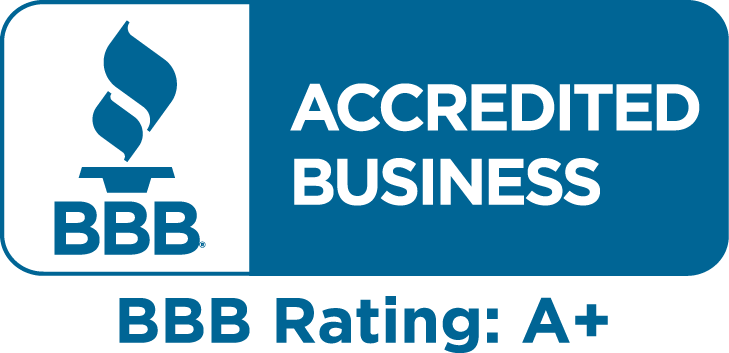Monthly Archives: April 2017

Clubhouse Rental and Bouncy House Use in Common Area
Question submitted by Steve P.
A homeowner wants to rent our homeowner association clubhouse and set up a Bouncy House on the common area for their children’s birthday party. About 30 kids plus adults will be attending the party.
Will our Homeowners Association (HOA) (or Planned Unit Development (PUD)) General Liability insurance cover the association if someone gets injured during the party?
Steve,
HOA (and PUD) General Liability insurance does not typically like to cover the liability risk posed by a special event when rent is being paid for use of the clubhouse or grounds.
Requests to rent clubhouses and to use Bouncy Houses in the common area at associations are becoming more frequent.
The best way to proceed is to have the homeowner purchase a special One Day Event insurance policy endorsement through their existing homeowner insurance policy.
The homeowner should increase their General Liability coverage to at least $1,000,000 for the day of the event and have the association be specifically named as “Additional Insured”.
A certificate typed in the agent’s office that lists coverage, but is “For Your Information Only” is not sufficient. The Additional Insured endorsement should be provided to the association in advance of the party.
I suggest having the homeowner’s agent confirm in writing that the One Day Event coverage will defend the association if someone is injured while using the Bouncy House and the association gets sued… just to be certain that Bounce Houses are not an excluded risk.
Have the One Day Event insurance include a Liquor Liability endorsement if the homeowners will be serving alcohol to the adults.

Homeowner Association accounting services
The following is a guest post by JR Orlando. If you are seeking expert HOA accounting advice and like using a company that is easy to work with… then you have just found the pot of gold under the rainbow! Read this post and then learn more at http://www.orlando-hoa.com/ .
Condo Ownership 101: What do your dues cover?
Posted by Orlando HOA Services
This is my answer to the burning question of “Where does my money go?”—the short answer.
Your HOA is required to pay for two kinds of expenses: Operating and Reserve. Your operating expenses cover such things as maintenance and repair, utilities, landscaping, janitorial, HOA Insurance and the general upkeep of all common area items. Here’s where I’m going to insert my own personal proviso. HOA owners sometimes have a tendency that condo ownership is just like renting: everything is the HOA’s responsibility. It’s not. There are elements of your property that you own, and you are responsible for. Further, if you do not maintain your own condo (say, a water pipe that runs into your unit breaks) and causes damage to another unit, you are responsible for the damage to your unit and the other unit damaged by your water pipe. The HOA is not your Fairly Godmother.
Your HOA is also required to keep enough money in reserves for future component replacement. Do you have a clubhouse? That is part of the common area and like all structures has an expiration date. Siding, roofing, furniture, all needs to be replaced at some time. Do you have a parking lot? Asphalt has a limited life and needs to be replaced. So a percentage of your assessments go to fund your reserves.
Current Davis Stirling law requires the HOA to publish a 30-year percent funded report for your reserves. It tells you clearly where you are well-funded and where you are weak. A strong HOA is 73% funded. Below 35% is weak, and indicates a good possibility that you will need a special assessment in the near future. Before you decide this does not concern you as you are likely to sell before that time, remember that this document is also furnished to your prospective buyers and can affect the price of your house.
Do you need an expert? Orlando HOA Services can help your HOA stay fiscally healthy through sound financial management. Check out our webpage at www.Orlando-HOA.com.
As an HOA insurance specialist… here’s where I add my own proviso. HOA owners frequently think that because Monthly Dues Payments pay for HOA insurance that everything that could be damaged or lost in a fire or due to water damage will be covered by the HOA policy. Think again! Your CCRs dictate what the HOA insurance should cover. Some CCRs limit HOA insurance coverage to just the Bare (perimeter) Walls. The unit owner is then responsible to insure all interior walls, cabinets, counter tops, flooring, etc. Other CCRs insure the interior walls, cabinets, counter tops “As Originally Constructed”, but do not insure the value of Upgrades such as granite counter tops, custom cabinets or hardwood floors so the unit owner’s personal policy needs to cover the value of the upgrades. Suggestion: Read your CCR’s Insurance Section. Ask the HOA insurance agent to interpret what is covered or not covered on the inside of your home. Use your personal policy to insure whatever the HOA policy does not cover. For more about covering the inside of your home, please read http://dandavisins.com/condo-unit-owner-h06

HOA & PUD Insurance “claims made”. Protecting rights to Directors and Officers
Homeowner Association (HOA) and Planned Unit Development (PUD) “Claims Made” Directors and Officers (D&O) Policy. Protecting rights to Directors and Officers insurance coverage.
The following material is for educational purposes only and does not constitute legal advice.
The following points are an excellent topic to discuss with your legal advisor.
It is suggested that any disputes, claims for compensation or claims for a change made by a homeowner to the association be resolved by Alternate Dispute Resolution or by the Internal Dispute Resolution process. If the homeowner does not believe the matter is resolved and is still angry after the mediation process is complete then it is suggested that associations or their professional managers communicate these unresolved issues to their legal advisor and to their insurance agent for a discussion and consideration of submitting a “Notice of Occurrence” to the Directors and Officers insurance company prior the end of the policy period as a means of preserving rights to coverage in the event the issue blooms into a lawsuit against the association/Directors at some future date.
As an example… A homeowner was not satisfied with how her small water damage claim was handled by the Homeowner Association and began making threats of a law suit against the Directors and Officers
so the Daniel W. Davis Insurance Solutions, LLC Agency submitted a “Notice of Occurrence” to the D&O carrier on behalf of our HOA client in order to preserve the association’s rights to coverage in the event the homeowner proceeded with a lawsuit at some future date. The following letter is the insurance company response to our submission.
Notice… how the HOA Directors and Officers insurance company defines Wrongful Act.
This definition appears to be broad, but HOAs and HOA Management Companies must be cautious about what type of D&O policy/coverage they purchase as some D&O carriers use a very narrow, limited definition of what constitutes a Wrongful Act.
Also Notice… the Exclusions… as D&O policies frequently exclude coverage when the D&O claim is based on a prior incident of Bodily injury, sickness, death or damage to property… as response to these perils is typically picked up and settled by the General Liability and or Property (Buildings Coverage) policies. Once again… be very cautious about what D&O policies your HOA purchases because some D&O insurance companies throw in more Exclusions than other companies.
Special Note… In my opinion just because the Directors and Officers coverage is provided by a well-known “Big Name” company does not mean they use a broad definition of Wrongful Act or only list
a few Exclusions. In my experience when the D&O coverage is included as part of a package (as “Big name” companies sometimes do) the coverage may be limited and or include more exclusions as compared to a separate “Stand-Alone” D&O policy – which may include a broad definition of Wrongful Act and may have fewer exclusions.
Dear _____,
We represent ___ Insurance Company, who subscribes the captioned policy (the “Policy”) issued to ___ Homeowners Association. This correspondence addresses the notice of a claim reported to ___ Insurance Company in connection with certain demands made against the Association by ___ (“the claimant”) in or about ___ 2016 regarding water damage inside the claimant’s home. We have now been informed by the Association’s broker that this matter was fully resolved and the claimant has withdrawn her claim. We will therefore close our file at this time.
We would like to remind you that, in relevant part, how coverage is afforded under the Policy for Wrongful Acts. Coverage Part C provides that ____ Insurance Company:
Shall pay on behalf of an Organization all Loss an Organization is legally obligated to pay
arising from a Claim first made against an Organization during the Policy Period and reported to Us in writing during the Policy Period or the Extended Reporting Period, if applicable resulting from a Wrongful Act. The Wrongful Act shall take place on or after the Continuity Date and before the end of the Policy Period.
Coverage Part D provides, in relevant part, that ____ Insurance Company:
Shall have the right and duty to defend and control any Claim made against an Insured based upon or arising out of any actual or alleged Wrongful Act(s), even if such Claim is groundless, false or fraudulent…
Wrongful Act is defined by the Policy to mean:
Y. Wrongful Act means:
(1)with respect to Individual Insureds, any breach of duty, neglect, error, misstatement, misleading statement, omission or act by such Insureds in his/her respective capacities as such, or any matter claimed against such Individual Insured solely by reason of his/her status as Individual Insureds of the Organization;
(2)with respect to the Organization under Coverage C, any breach of duty, neglect, error, misstatement, misleading statement, omission or act by or on behalf of the Organization;
(3)with respect to service on an Outside Entity, any matter claimed against such Individual Insured arising out of such Insured serving as a director, trustee, trustee emeritus or governor or an Outside Entity in such capacity, but only if such service is at the specific written request or direction of the Organization;
(4)with respect to both the Individual Insureds and the Organization and subject to paragraphs Y (1), (2) and (3) above, Wrongful Act shall specifically include:
(a)Employment Practices Wrongful Act: or
a.Non-Employment Discrimination; or
b.Community Association Management Wrongful Act
c.Libel, slander, defamation or publication or utterance in violation of an individual’s right of privacy; or
d.Wrongful entry or eviction or other invasion of the right of occupancy; or
e.False arrest or wrongful detention; or
f.Plagiarism; or
g.Infringement of copyright or trademark or unauthorized use of title
Because limited information has been provided by the nature of the alleged act, we reserve ___ rights to deny coverage to the extent that no act meets the definition of Wrongful Act as provided by the Policy.
We also note that Coverage Parts C & D are subject to a $5,000.00 deductible for each Wrongful Act. Therefore, even if coverage was available under the terms of the Policy, as the disputed amount appears to be $2,500.00 we reserve ___ rights to deny any indemnity payments accordingly.
Because this claim appears to result from Water damage, we would also like to turn your attention to Section IV of the Policy, Exclusions. In relevant part, Exclusion J states:
The insurance provided does not apply to any Claims, Damages, Loss or Defense Costs, involving, caused by, based on, attributed to, arising out of or arising from, in consequence of, resulting directly or indirectly from, or in any way related to the following, regardless of whether any other cause, event, material condition or product contributed concurrently or in any other sequence to such Claims, Damages, Loss or Defense Costs:
J. Bodily injury, sickness, disease, or death of any person, or damage to or Destruction of any tangible property, including the loss of use thereof; provided, however, that this exclusion shall not apply to emotional distress or mental anguish where there are no allegations of bodily injury, sickness, disease, or death of any person.
We reserve ___ rights accordingly.
Conclusion
Thank you for your time…





